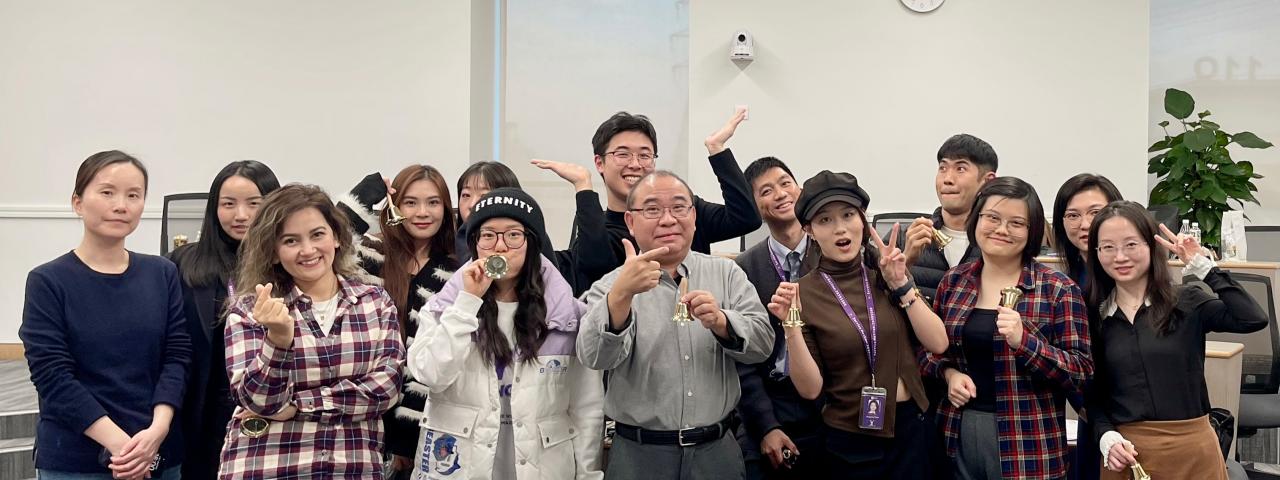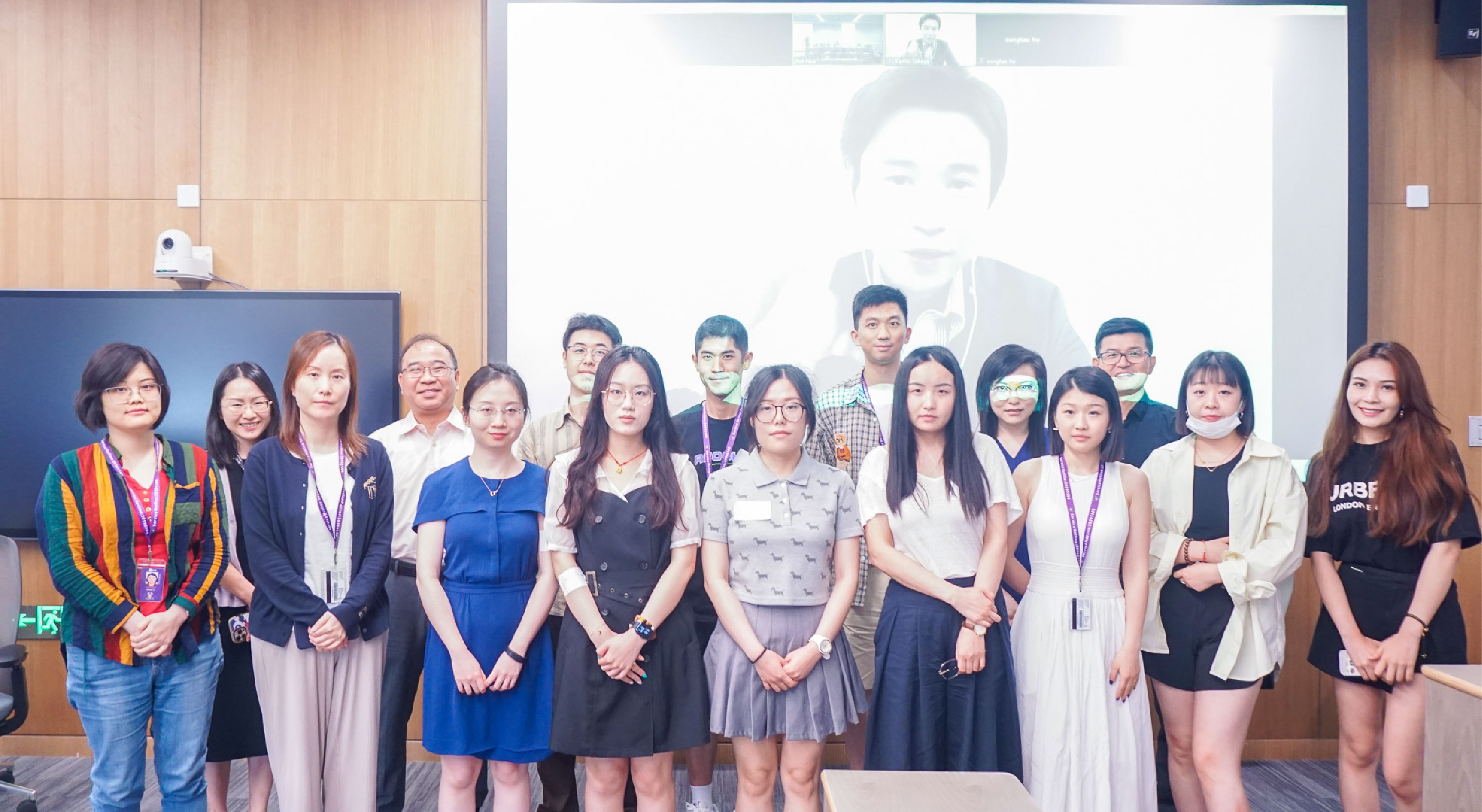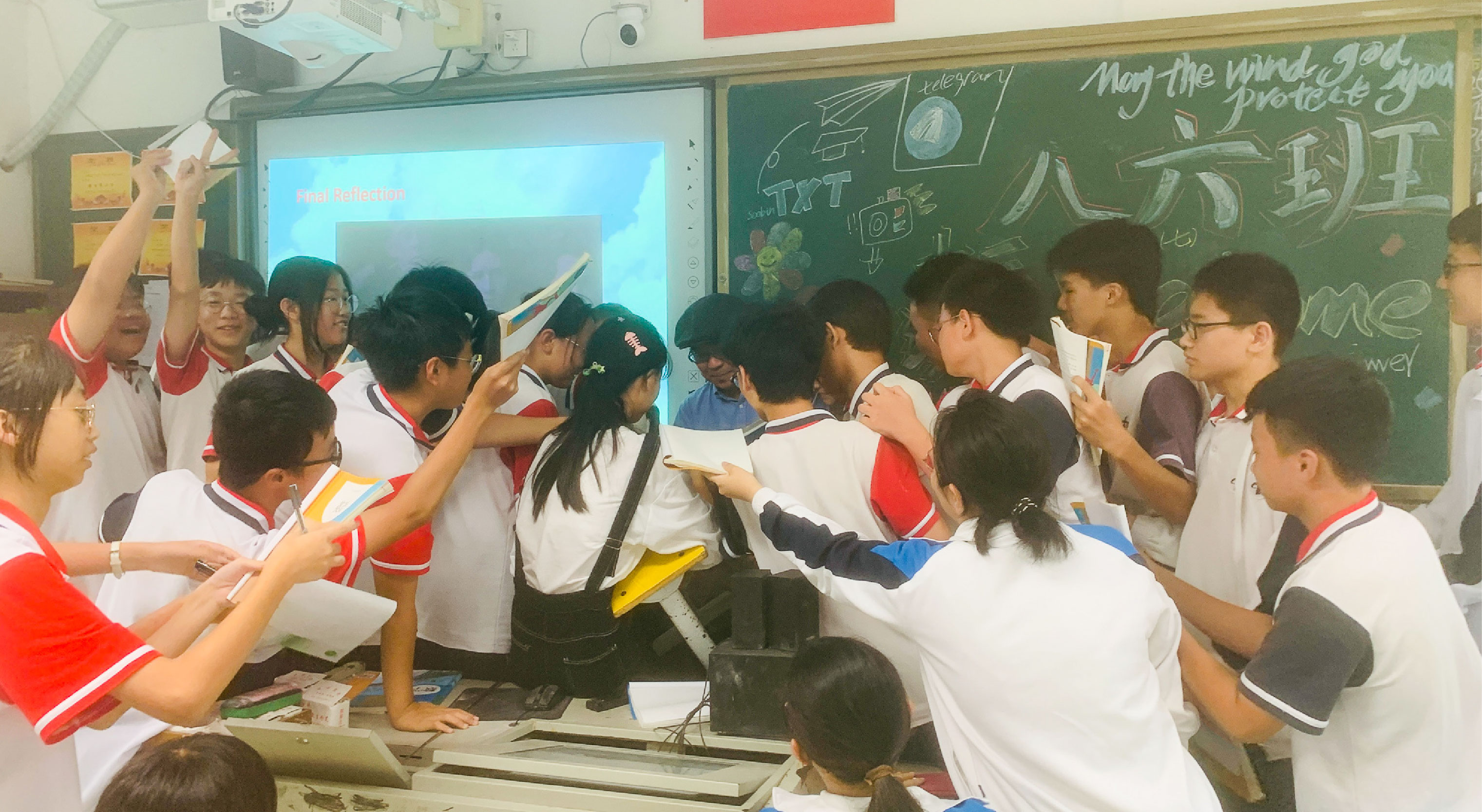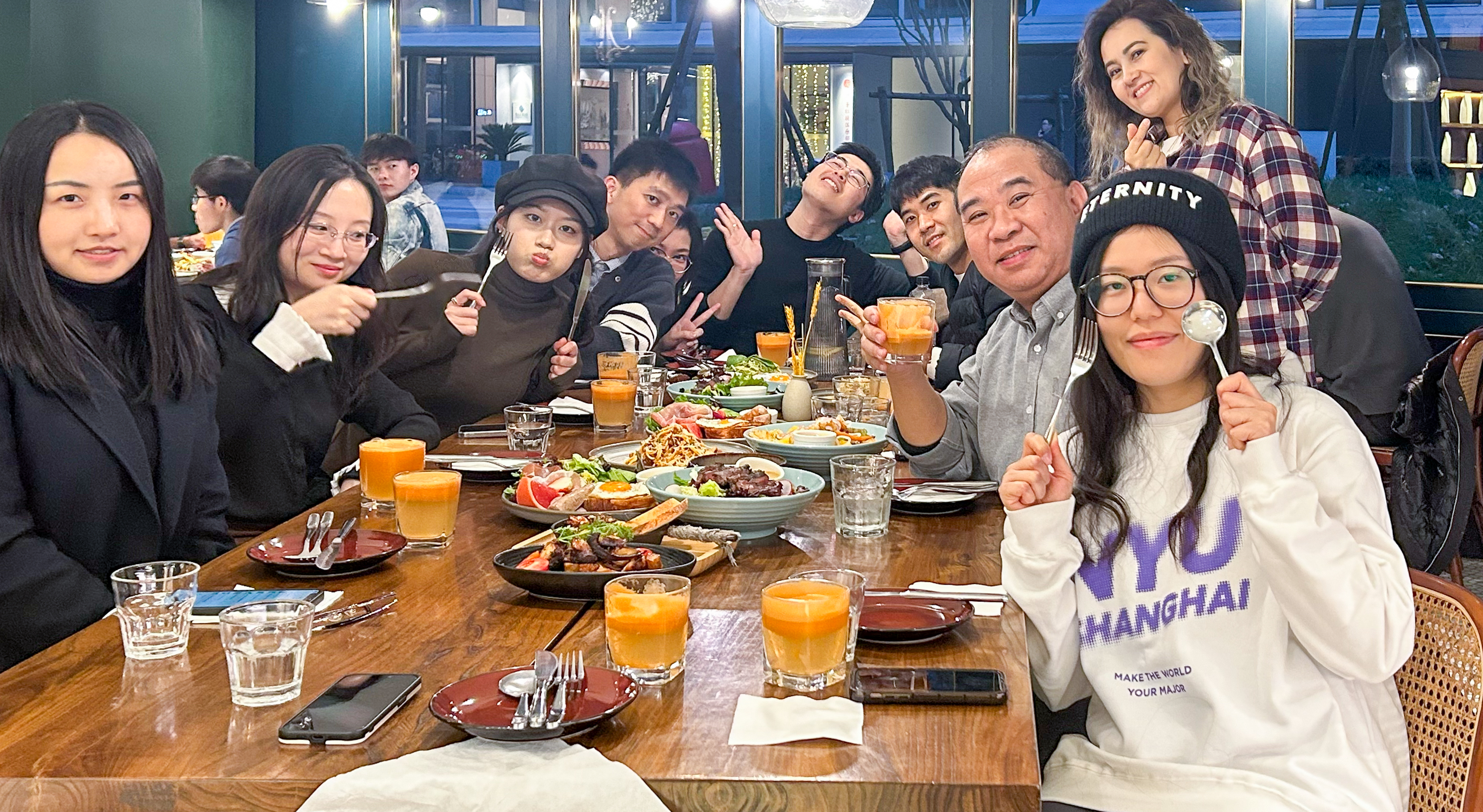Empowering the Next Generation of Educators: TESOL Program Welcomes New Co-Director

NYU Shanghai’s MA in Teaching English to Speakers of Other Languages (TESOL) program, offered jointly with the NYU Steinhardt School of Culture, Education and Human Development, enrolled its inaugural class in 2018. With a two-year curriculum designed to advance students’ English language proficiency and teaching skills, including a summer immersion in New York City, the program attracts a diverse student body. Students come from all regions of China and hail from various professional backgrounds, from teachers in elementary school to instructors at college or university, from trainers in corporate training programs to entrepreneurs in the education industry.
Over the years, the TESOL program has consistently refined its curriculum and expanded its faculty. Last year, Professor Liang Jiansong joined as the program’s new co-director alongside Professor Kentei Takaya. With over 30 years of experience as a TESOL educator in the U.S., Liang says joining NYU Shanghai fulfills a lifelong dream to contribute to higher education in China.
Tell us about the professional path that eventually led you to NYU Shanghai.
Liang: My journey in language education began when I was a senior English major at Jinan University in Guangzhou. At that time I was tutoring a 35-year-old man who was preparing to immigrate to the U.S. Lacking any formal teacher training back then, I simply taught him the way I was taught, mirroring my own learning experiences. Witnessing his progress in just three months’ time ignited my passion for English language teaching. It brought me great joy to know that I could be of help to others.
Later on, during my graduate study, I taught as a Practicum student for a freshman-level English reading course, I departed from traditional class formats and attempted teaching the class in ways I felt would best serve the students’ needs and shared my own study strategies with the students. Their positive feedback was quite affirming, and I decided to pursue teaching English as a career.
In pursuit of immersion in an English language environment and culture, I went to the U.S. for further studies and obtained a PhD in Foreign Language Education at the University of Texas at Austin. I then began my career as an ESL Coordinator at the University of California, Riverside, and later worked as a TESOL professor and program director at Biola University in California. After 22 years at Biola, I sought a new challenge when learning about this job opportunity at NYU Shanghai.
 Professor Liang (second from the left in the second row) with TESOL Class of 2023 Cohort at the orientation
Professor Liang (second from the left in the second row) with TESOL Class of 2023 Cohort at the orientation
I must say that this position at NYU Shanghai is both exciting and challenging. It allows me to bring my decades of experience in developing and leading TESOL programs in North America back to China. While I'm familiar with TESOL in North America, adapting TESOL to the Chinese context is a unique challenge for me. However, being a Chinese native with a deep understanding of the culture and experience within the education system here provides me with a distinct advantage. I'm all excited about applying my experience in the U.S. along with my understanding of the Chinese context to further develop NYU Shanghai’s TESOL program.
As an experienced educator, what do you value the most in teaching?
Liang: I believe that the purpose of education is to cultivate active, lifelong, and self-directed learners. This philosophy, which was lacking during my own educational experience in China decades ago, guides my teaching. Before COVID, I visited schools in China annually. From my observations, an increasing number of educators are recognizing the efficacy of intrinsic motivation in learning and are gradually incorporating it into their classrooms, particularly at private schools. However, many institutions remain heavily focused on standardized testing and see grades as more important than anything else.
 Professor Liang (in blue shirt) surrounded by students when visiting No. 3 Middle and High School in Daxi Town, Wenling City
Professor Liang (in blue shirt) surrounded by students when visiting No. 3 Middle and High School in Daxi Town, Wenling City
While acknowledging the importance of test scores, I believe there are still opportunities to introduce a paradigm shift in these exam-oriented environments. By fostering active learning abilities, we will be able to help students develop English language communication skills, and passing tests will only be a byproduct of the learning process. This ethos represents the core of my teaching philosophy and the culture I aspire to instill in the TESOL program at NYU Shanghai.
How do you envision the program’s development over the next five years?
Liang: Maintaining a high level of rigor in our program is paramount, but that poses challenges, particularly given that many of our students are working professionals with full-time jobs. However, this is non-negotiable. We anticipate our students to dedicate at least 10 hours to study on a weekly basis for each course they take here. Yes, it can be exhausting, but it is only through this type of commitment that they can get the most out of their graduate training, truly develop their teaching expertise, and take on challenges in the classroom in the real world.
Another emphasis will be encouraging our students to begin pursuing professional development while they are graduate students. For instance, we will encourage our students to actively participate in academic conferences and bravely share their newly gained insights and perspectives with the larger academic community. This type of professional engagement not only has personal benefits like improving communication skills and networking with experts, but it also benefits the broader education community as well. The new insights or perspectives they share in their conference presentations may inspire their fellow teachers and may make an impact on other teachers’ professional lives. This aligns with one of the core principles of education – to positively influence the lives of others.
Through their learning journey at NYU Shanghai’s TESOL program, my hope is that our students will establish solid academic foundations, increase teaching expertise, and more importantly, develop as education leaders who will make a difference in the classroom but also in the much larger teaching and learning community.
 Liang (second from the left) with Class of 2023 Cohort in celebration of their last day of class in the fall semester
Liang (second from the left) with Class of 2023 Cohort in celebration of their last day of class in the fall semester
Externally, we plan to strengthen the program’s connections with local schools in Shanghai and beyond. In today’s globalized world, cultivating a new generation of language educators requires not only cutting-edge pedagogy but also critical thinking skills, intercultural competence, and teaching creativity. We need to help our students integrate these skills into the local context in response to the ever-changing demands in China’s education field.
Additionally, I aspire to extend our vision to the broader community through TESOL symposia and workshops. My goal is to mobilize our alumni and current students to take the lead in this initiative. These symposia will not just serve as platforms for presenting their work, but will also help cultivate in our students the skills necessary to become education leaders. No matter where they go in the future, they will possess the capabilities to make a meaningful impact on their local communities. While teachers are inherently leaders within their classrooms, my aspiration is for our students to transcend these boundaries and disseminate their well-honed ideas as educators to the much wider learning community.



 沪公网安备31011502017015号
沪公网安备31011502017015号